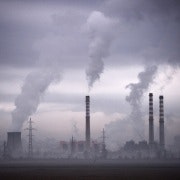Silence should raise alarm bells
A fascinating example is the convening of a meeting last month in Tokyo of trade unions representing steelworkers from Australia, Brazil, India, Russia, Britain, America and Japan to discuss the impact of greenhouse gas policies on their members. Theirs is an industry with a very substantial environmental footprint. The iron and steel industry is responsible for about five per cent of global carbon dioxide emissions – by comparison, total Australian greenhouse gas emissions are a little under 1.5 per cent of global volumes. Ninety per cent of these emissions come from nine countries and regions: China, Brazil, the EU, India, Japan, Korea, Russia, the Ukraine and the US.
On average, 1.7 tonnes of CO2 is emitted for every tonne of steel produced, except in China, where the ratio is twice as much – and global demand, before the worldwide economic meltdown, was predicted to grow by 3-5 per cent a year.
So far as I can find, not a syllable has been reported on this event in the mainstream Australian media.
Paul Howes, the 27-year-old national secretary of the Australian Workers Union and a recently-appointed vice-president of the ACTU, led the delegation from here.
The AWU website reports him telling the meeting that Australian steelworkers do not want to be sacrificed on the altar of extreme green stances. To close down local plants to allow Chinese, Brazilian or Indian steel plants to take up the production slack is madness, he argued.
The meeting agreed to meet again next year and to try to include the trade union representing Chinese steelworkers in the gathering.
The core product that Howes brought home from the meeting is approval of an AWU proposition that workers hardest hit by emissions trading should be offered "carbon insurance.” This requires the Rudd government to issue carbon permits to workers in energy-intensive manufacturing industries – and there are 1.1 million of them in Australia – so that they can cash them in if they lose their jobs to fund "retraining, re-skilling, redeploying or redundancy.”
The Tokyo meeting communique calls on governments to ensure that any international climate change arrangements include competitive provisions to avoid disadvantage to companies and countries that are first to adopt carbon pricing schemes.
Earlier this year, in a TV current affairs interview, Howes argued that the Rudd government should allocate free permits to the steel and aluminium industries under the emissions trading scheme until "there is a level global playing field.”
The Tokyo meeting decisions, involving a major member of the ALP's trade union base, surely require a reaction from Kevin Rudd and Penny Wong, but no media in Australia have pursued them to respond.
Howes himself, writing a commentary for The Australian this week, seemed to go out of his way not to call the Rudd government to account on these issues, urging euphemistically "an inclusive and comprehensive (Australian) green deal.”
Reverse the situation – a business lobby group urging climate change action and the former government – and the media would have been over John Howard like a rash.
Equally, one has to ask about the quality of the homework by Malcolm Turnbull's opposition – it is hard to see Rudd in the same position not seizing the opportunity for some hard questioning.
















